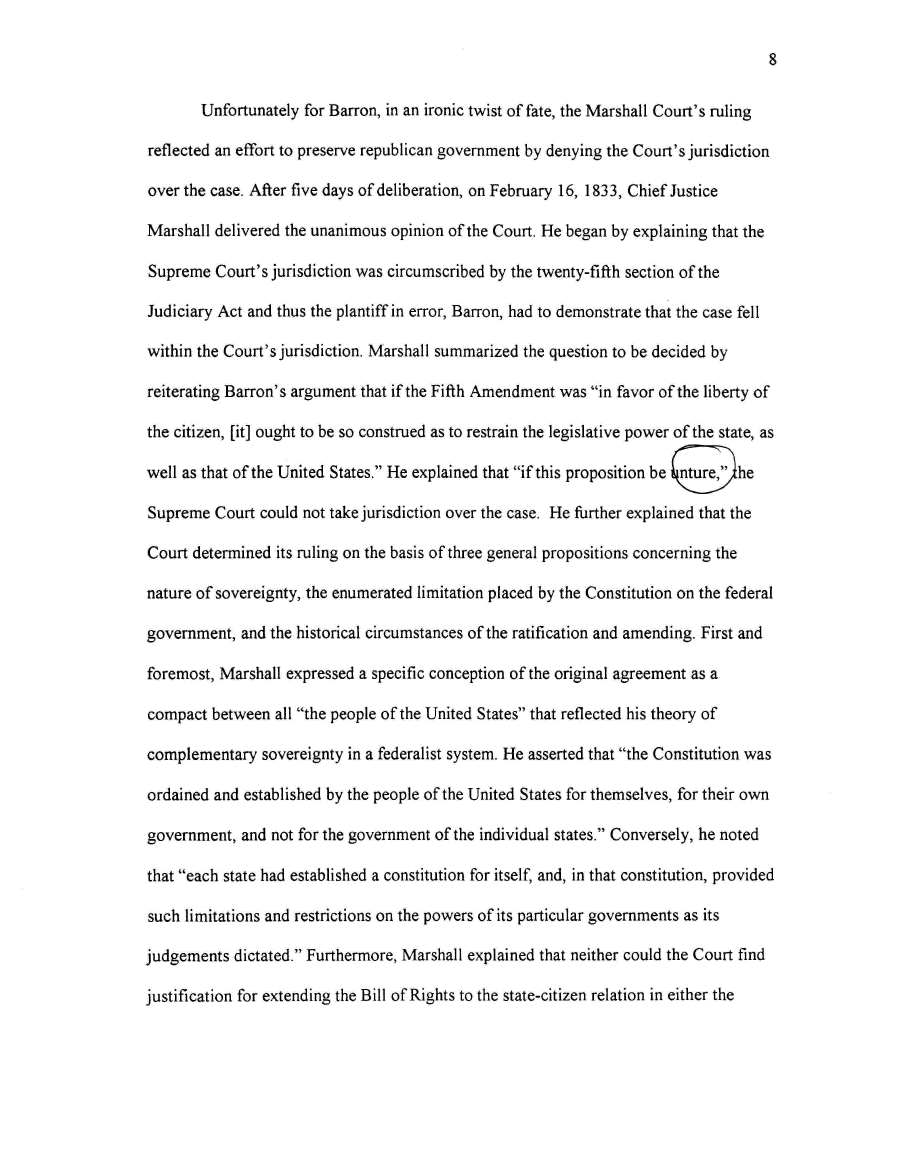|
8
Unfortunately for Barren, in an ironic twist of fate, the Marshall Court's ruling
reflected an effort to preserve republican government by denying the Court's jurisdiction
over the case. After five days of deliberation, on February 16, 1833, Chief Justice
Marshall delivered the unanimous opinion of the Court. He began by explaining that the
Supreme Court's jurisdiction was circumscribed by the twenty-fifth section of the
Judiciary Act and thus the plantiff in error, Barron, had to demonstrate that the case fell
within the Court's jurisdiction. Marshall summarized the question to be decided by
reiterating Barren's argument that if the Fifth Amendment was "in favor of the liberty of
the citizen, [it] ought to be so construed as to restrain the legislative power of the state, as
well as that of the United States." He explained that "if this proposition be imture,"/lhe
Supreme Court could not take jurisdiction over the case. He further explained that the
Court determined its ruling on the basis of three general propositions concerning the
nature of sovereignty, the enumerated limitation placed by the Constitution on the federal
government, and the historical circumstances of the ratification and amending. First and
foremost, Marshall expressed a specific conception of the original agreement as a
compact between all "the people of the United States" that reflected his theory of
complementary sovereignty in a federalist system. He asserted that "the Constitution was
ordained and established by the people of the United States for themselves, for their own
government, and not for the government of the individual states." Conversely, he noted
that "each state had established a constitution for itself, and, in that constitution, provided
such limitations and restrictions on the powers of its particular governments as its
judgements dictated." Furthermore, Marshall explained that neither could the Court find
justification for extending the Bill of Rights to the state-citizen relation in either the
|

